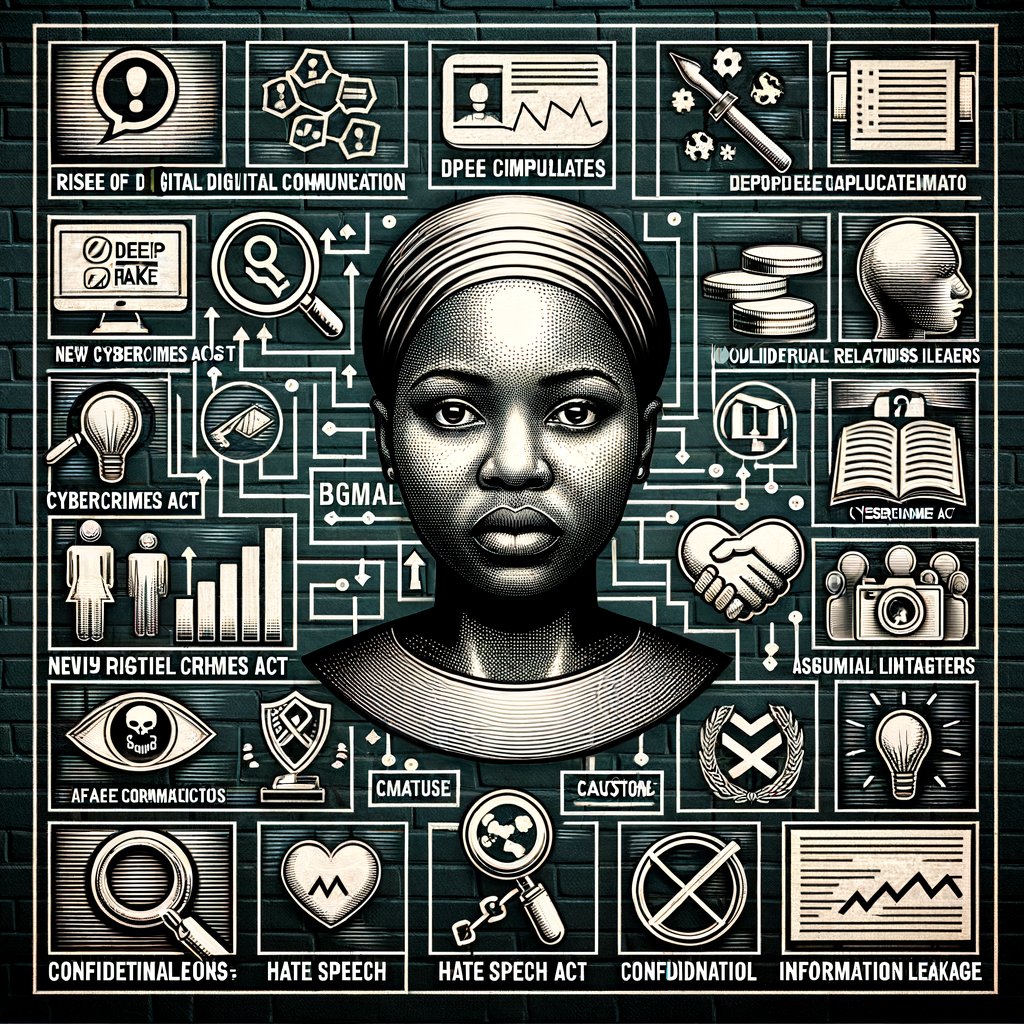Image created by AI
Navigating Legal Risks: The Impact of Social Media Posts on South African Legal Boundaries
The rise of digital communication in South Africa, primarily through platforms like WhatsApp, has necessitated stringent regulations to curb abuses. Recent developments in South African law, particularly under the Cybercrimes Act of 2021 and the upcoming Hate Crimes Act, have set clear boundaries on what is permissible online, with severe consequences for transgressions.
Industrial relations expert Nombuso Ndlovu from Strata-g Labour Solutions underscores the necessity for professional conduct on platforms like WhatsApp, especially when used for workplace communication. Unprofessional behavior, including the sharing of inappropriate content or leaking confidential information, can lead not only to job loss but also potentially to criminal charges.
The Cybercrimes Act criminalizes the distribution of harmful data. Specifically, it targets three areas: sharing intimate images without consent (including "deepfakes"), inciting violence or property damage, and distributing messages threatening violence based on group characteristics like race or religion.
Further complicating the legal landscape, the Hate Crimes Act, signed into law in May 2024 by President Cyril Ramaphosa, targets hate speech more directly. It defines hate speech as the intentional publication of material that provokes or promotes hate against protected characteristics such as race, gender, and religion. Offenders face substantial fines and up to five years in prison, emphasizing the Act's role in policing the boundaries of acceptable speech in the public sphere.
However, while these laws are vigilant in their protection against misuse, they also maintain provisions for actions conducted in "good faith", allowing room for legitimate expression without fear of unwarranted prosecution.
For South Africans, the message is clear: while digital platforms provide powerful tools for communication and expression, they also demand a higher level of responsibility and awareness of the legal implications of shared content. To navigate this landscape safely, users must stay informed about the legal standards that govern digital interactions and exercise caution in their communications.
Understanding and respecting these laws not only protect individuals from legal repercussions but also contribute to healthier and more respectful digital communication environments.










